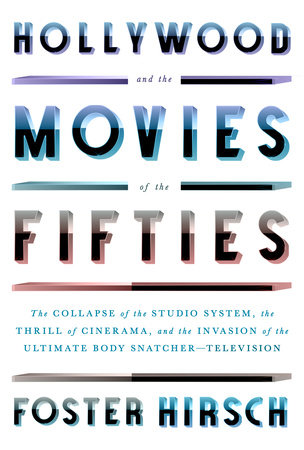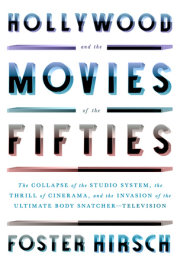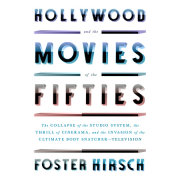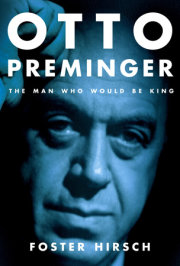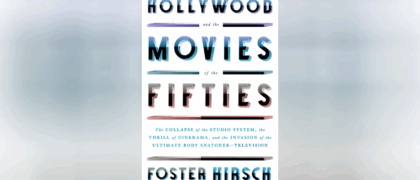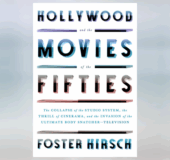A fascinating look at Hollywood’s most turbulent decade and the demise of the studio system—set against the boom of the post–World War II years, the Cold War, and the atomic age—and the movies that reflected the seismic shifts
Hollywood in the 1950s was a period when the film industry both set conventions and broke norms and traditions—from Cinerama, CinemaScope, and VistaVision to the epic film and lavish musical. It was a decade that saw the rise of the anti-hero; the smoldering, the hidden, and the unspoken; teenagers gone wild in the streets; the sacred and the profane; the revolution of the Method; the socially conscious; the implosion of the studios; the end of the production code; and the invasion of the ultimate body snatcher: the “small screen” television.
Here is Eisenhower’s America—seemingly complacent, conformity-ridden revealed in Vincente Minnelli’s Father of the Bride, Walt Disney’s Cinderella, and Brigadoon, among others.
And here is its darkening, resonant landscape, beset by conflict, discontent, and anxiety (The Man Who Knew Too Much, The Asphalt Jungle, A Place in the Sun, Touch of Evil, It Came From Outer Space) . . . an America on the verge of cultural, political and sexual revolt, busting up and breaking out (East of Eden, From Here to Eternity, On the Waterfront, Sweet Smell of Success, The Wild One, A Streetcar Named Desire, and Jailhouse Rock).
An important, riveting look at our nation at its peak as a world power and at the political, cultural, sexual upheavals it endured, reflected and explored in the quintessential American art form.

